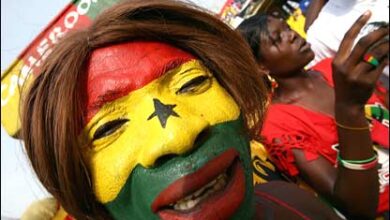
The government has successfully raised some GH¢892.8 million from the sale of a three-year bond in the week ending September 22.
The bond was sold to resident and not resident investors at a coupon rate of 18.25 per cent.
Although bids for the bond totalled GH¢940.83 million, the government rejected the excess and took the GH¢892.83 million that it had budgeted for
Also, yields on the 91-Day T-Bill rose by 10 basis points (bps) to 13.24 per cent while the 182-Day T-Bill increased by three bps to settle at 14.06 per cent.
Yields on the other treasury securities remained unchanged, except for the 3-year bond, which dipped by 25bps to 18.25 per cent.
In the week’s auction, a total of GH¢598.09 million bids were tendered, of which the government accepted GH¢571.83 million.
This meant that the week’s target of GH¢1 billion was unrealised.
This week, the government expects to sell GH¢768.00 million worth of the 91-Day and 182-Day T-Bills. It also expected to raise GH¢200 million from the 1-year note.

Stock market
Trades were much lower in the holiday-shortened week as compared with previous week’s values.
A total volume of 1.55 million shares valued at GH¢1.56 million was recorded in the trading week, as against 3.19 million shares worth GH¢7.70 million in the week ended September 15.
Liquidity on the exchange was mainly driven by SIC Ltd and Ecobank Transnational Incorporated. The two stocks accounted for 69.73 per cent of the total traded volume.
GCB Bank Ltd and Enterprise Group Ltd were, however, the largest contributors in terms of value. They comprised 32.31 per cent of the total traded value.
Price movements
A total of six advancers and eight laggards were recorded.
Benso Oil Palm Plantation Ltd topped the advancers with a 5 pesewa gain to trade at GH¢5.66 per share. Guinness Ghana Brewery Ltd and HFC Bank Ltd had their share prices lifted by three pesewas and two pesewas to close at GH¢1.50 and GH¢1.37 per share respectively. Ecobank Transnational Incorporated and Ghana Oil Company increased by a pesewa each to trade at 16 pesewas and GH¢2.33 per share respectively.
Golden Star Resources Ltd also upturned by a pesewa to close at GH¢1.91 per share.
On the flip side, Enterprise Group Ltd emerged as the worst performing stock after trimming 50 pesewas off its share price to settle at GH¢4.50 per share.
GCB Bank followed closely with a 31 pesewa loss to trade at GH¢4.13 per share.
Standard Chartered Bank Ltd and Fan Milk Ltd had their share prices settling at GH¢19.9 after both trimmed 10 pesewas each.
Tullow Oil Plc also shed 6 pesewas to trade at GH¢17.74 per share. Other laggards were SIC Ltd, Total Petroleum Ltd and PBC Ltd.

Currency market
Trading on the interbank currency market ended with the cedi losing grounds to the US dollar and the euro. It, however, floored the British pound.
The US dollar closed lower on the international currency market despite starting the week on an exciting note.
The cedi, thus, traded at GH¢4.41 per dollar, corresponding to a year-to-date depreciation of 4.94 per cent.
Chains of upbeat economic data from the Eurozone helped to buoy the euro, causing it to shine among its peers on the international currency market.
As a result the cedi traded at GH¢5.28 per euro, bringing its year-to-date depreciation to 18.98 per cent.
The British pound, on the other hand, depreciated by 0.26 per cent against the local currency as investors’ expressed their displeasure in Theresa May’s speech concerning the lack of details about the future of UK after the Brexit.
The cedi rode on the back of these ill sentiments to reduce its exchange rate to GH¢5.97 per pound. This brought its year-to-date depreciation of 14.9 per cent.
Commodities
Crude oil managed to end the week on a positive note in spite of reports of rising stockpile of the commodity in the US.
Brent crude had its unit price advancing by 97 cents to trade at $56.59 per barrel.
Similarly, Gold settled lower at the close of the week’s trading despite receiving a facelift on the last trading session.
The metal recorded a weekly loss of $25.77 to trade at $1,299.43 per ounce.
Cocoa, on the other hand, tumbled on selling pressure as favourable climatic conditions in top grower countries – Ivory Coast and Ghana – continued to influence output hence reducing its value on the international market. The soft crop recorded a weekly loss of $23.50 to trade at $1,978.50 per metric tonne.
Coffee suffered a defect in the trading week. It lost six cents to trade at $1.34 per pound.




